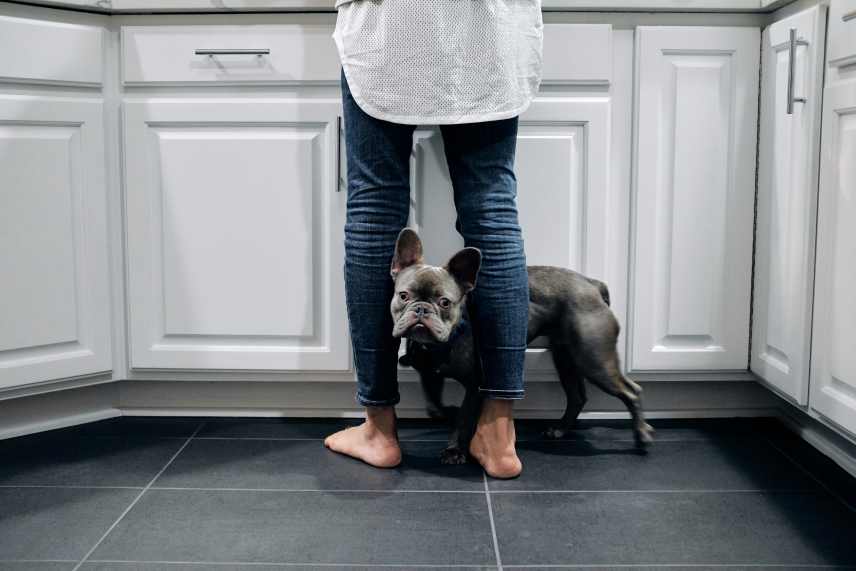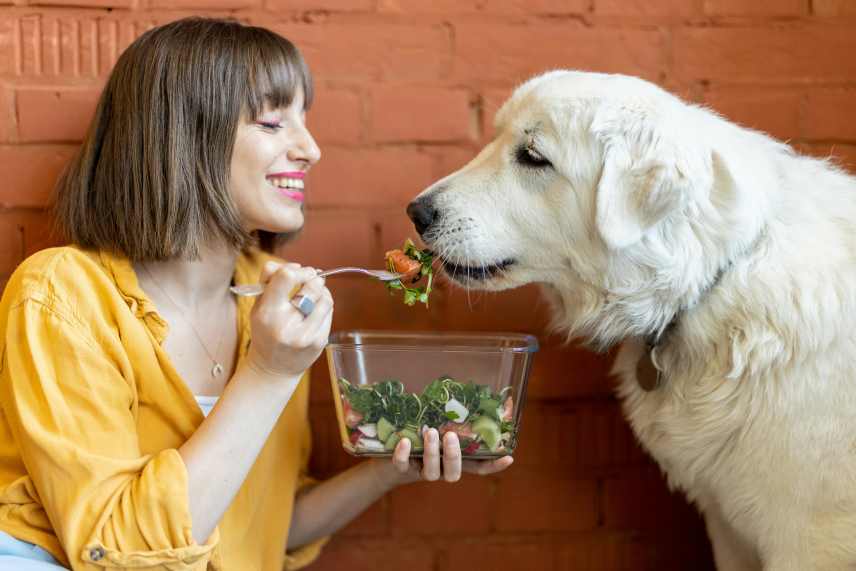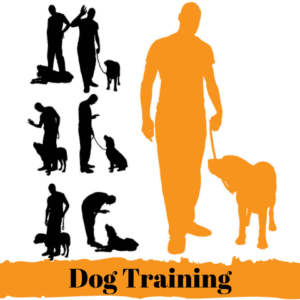Are you tired of feeding your furry friend the same old dog food every day? Well, we’ve got some good news for you! In this article, we will introduce you to five nutritious and delicious alternatives to dog food that will not only satisfy your pup’s taste buds but also provide them with the essential nutrients they need to live a healthy and happy life. Say goodbye to boring kibble and hello to a world of tasty options!
Our carefully curated list includes meals that are not only good for your dog’s health but also easy to prepare at home. From homemade doggie meatballs to mouthwatering fish cakes, these alternatives are packed with quality ingredients that will keep your pup begging for more.
We understand that your dog’s well-being is of utmost importance to you, which is why we have made sure to include options that cater to various dietary needs and preferences. So, whether your furry friend has allergies or is a picky eater, we’ve got you covered!
Get ready to discover the best meals to feed your furry friend and treat them to a whole new level of deliciousness and nutrition. Let’s dive in!
Why Consider Alternatives to Dog Food
Feeding your dog the same store-bought dog food every day can get monotonous, and let’s face it, even the most premium brands can lack the variety and excitement that your pup craves. That’s where alternatives to dog food come in. By introducing different meals into your dog’s diet, you not only add variety but also provide them with a range of nutrients that may be missing from their regular food.
Furthermore, some dogs have specific dietary needs or allergies that may not be adequately addressed by commercial dog food. By exploring alternative options, you can tailor your dog’s diet to meet their specific requirements, ensuring their overall health and well-being.
Benefits of Feeding Your Dog Nutritious and Delicious Meals
Feeding your dog nutritious and delicious meals has numerous benefits that go beyond simply satisfying their taste buds. Here are some key advantages:
- Improved health: Nutritious meals can boost your dog’s immune system, promoting overall health and well-being. A balanced diet with quality ingredients can reduce the risk of chronic diseases and help maintain a healthy weight, ensuring your furry friend lives a long and happy life.
- Enhanced digestion: High-quality ingredients in homemade meals can improve your dog’s digestion, reducing the chances of gastrointestinal issues such as bloating or diarrhea. By avoiding artificial additives and fillers often found in commercial dog food, you can minimize digestive discomfort for your pup.
- Increased energy levels: Proper nutrition is essential for your dog’s energy levels. By providing them with nutritious and delicious meals, you can ensure they have the energy they need to stay active, playful, and engaged.
- Better coat and skin health: A nutritious diet can improve your dog’s coat and skin health, resulting in a shiny coat, reduced shedding, and healthy skin. Essential fatty acids found in certain ingredients can help alleviate dryness and itching, leaving your pup looking and feeling their best.
- Stronger immune system: Nutritious meals can strengthen your dog’s immune system, making them more resistant to infections and diseases. By incorporating ingredients rich in vitamins, minerals, and antioxidants, you can give your furry friend an extra boost of immune support.
Nutritional Requirements for Dogs
Before we get into the alternatives to dog food, it’s essential to understand the nutritional requirements of dogs. Dogs require a balanced diet that includes proteins, fats, carbohydrates, vitamins, and minerals to thrive.
Proteins are the building blocks of your dog’s body and are crucial for muscle development and repair. Good sources of protein for dogs include lean meats, poultry, fish, and eggs. Fats provide energy and are essential for healthy skin and coat. Healthy fats can be found in fish, flaxseed, and certain oils.
Carbohydrates provide energy and fiber. While dogs do not require as many carbohydrates as humans, they can benefit from complex carbohydrates found in fruits, vegetables, and whole grains. Vitamins and minerals are necessary for various bodily functions and can be obtained from a well-rounded diet that includes a variety of ingredients.
Homemade Dog Food Recipes
If you’re looking to provide your dog with nutritious and delicious meals, homemade options are a fantastic choice. By preparing meals at home, you have full control over the ingredients, ensuring your pup receives optimal nutrition. Here are a few homemade dog food recipes to get you started:
1. Doggie Meatballs
Ingredients:
- 1 pound ground beef or chicken
- 1 cup cooked quinoa
- 1/2 cup grated carrots
- 1/2 cup finely chopped spinach
- 1/4 cup chopped parsley
Instructions:
- In a large bowl, mix together the ground beef or chicken, cooked quinoa, grated carrots, chopped spinach, and chopped parsley.
- Roll the mixture into small meatballs, about the size of a golf ball.
- Place the meatballs on a baking sheet lined with parchment paper.
- Bake in a preheated oven at 350°F for 20-25 minutes, or until cooked through.
- Allow the meatballs to cool before serving them to your pup.
2. Fish Cakes
Ingredients:
- 1 can of tuna or salmon, drained
- 1 cup cooked sweet potatoes, mashed
- 1/2 cup cooked peas
- 1/4 cup chopped fresh dill
- 1/4 cup oat flour
Instructions:
- In a bowl, combine the drained tuna or salmon, mashed sweet potatoes, cooked peas, chopped fresh dill, and oat flour.
- Mix well until all the ingredients are evenly combined.
- Form the mixture into small patties, about the size of your palm.
- Heat a non-stick skillet over medium heat and cook the fish cakes for 3-4 minutes on each side, or until golden brown.
- Allow the fish cakes to cool before serving them to your pup.
3. Chicken and Rice Stew
Ingredients:
- 2 chicken breasts, cooked and shredded
- 1 cup cooked brown rice
- 1/2 cup cooked carrots, mashed
- 1/2 cup cooked green beans, chopped
- 1/4 cup chicken broth
Instructions:
- In a pot, combine the shredded chicken breasts, cooked brown rice, mashed carrots, chopped green beans, and chicken broth.
- Mix well and bring the mixture to a simmer over medium heat.
- Cook for 10-15 minutes, allowing the flavors to meld together.
- Remove from heat and let the stew cool before serving it to your pup.
These homemade dog food recipes are just a starting point, and you can customize them based on your dog’s preferences and dietary needs. Remember to consult with your veterinarian to ensure the recipes align with your dog’s specific requirements.
Raw Food Diet for Dogs
Another alternative to traditional dog food is a raw food diet. Advocates of raw feeding believe that dogs should eat a diet that closely resembles what their ancestors consumed in the wild. This diet typically consists of raw meat, bones, fruits, vegetables, and some organ meats.
Proponents of the raw food diet claim that it provides numerous benefits, including improved digestion, healthier skin and coat, increased energy levels, and better dental health. However, it’s important to note that the raw food diet may not be suitable for all dogs, and it requires careful planning and consideration.
If you’re considering a raw food diet for your pup, it’s crucial to consult with a veterinarian or a canine nutritionist to ensure that the diet meets your dog’s nutritional needs and to minimize the risk of any potential health concerns.
Grain-free Dog Food Options
Grain-free dog food has gained popularity in recent years, with many pet owners opting for this alternative. Grain-free dog food eliminates grains such as wheat, corn, and soy from the ingredients list. Instead, it relies on alternative sources of carbohydrates, such as sweet potatoes, peas, and lentils.
The idea behind grain-free dog food is to mimic a more natural diet for dogs, as grains are not a typical part of their ancestral diet. While grain-free dog food may be beneficial for dogs with grain allergies or sensitivities, it’s important to note that grains themselves are not inherently harmful to dogs.
If you’re considering switching to grain-free dog food, it’s essential to consult with your veterinarian to ensure that the alternative diet meets your dog’s nutritional needs and to determine if it’s the right choice for their specific circumstances.
Vegetarian and Vegan Dog Food Alternatives
For pet owners who follow a vegetarian or vegan lifestyle, finding alternatives to traditional dog food can be a challenge. However, it is possible to provide your dog with a balanced diet that aligns with your ethical choices.
Vegetarian and vegan dog food alternatives typically rely on plant-based proteins such as soy, peas, lentils, and quinoa to meet the dog’s nutritional needs. These alternatives often incorporate essential vitamins and minerals to ensure your pup receives a well-rounded diet.
While dogs are omnivores and can technically survive on a vegetarian or vegan diet, it’s crucial to consult with a veterinarian or a canine nutritionist to ensure that the diet provides all the necessary nutrients. Some dogs may require additional supplementation to meet their dietary requirements, such as omega-3 fatty acids or vitamin B12.
High-protein Dog Food Options
If your dog is particularly active or requires more protein in their diet, high-protein dog food options are worth considering. High-protein dog foods typically have a higher percentage of protein compared to traditional dog food formulas.
Protein-rich dog food can be beneficial for dogs that require extra muscle support, such as working dogs or highly active breeds. Additionally, high-protein diets can aid in weight management, as protein tends to be more satiating than carbohydrates or fats.
When selecting a high-protein dog food, it’s important to choose a formula that includes high-quality sources of protein, such as lean meats or fish. Avoid formulas that rely heavily on plant-based proteins, as they may not provide the complete amino acid profile that dogs need.
Best Commercial Dog Food Brands for Nutritious and Delicious Meals
While homemade and alternative dog food options are fantastic choices, some pet owners prefer the convenience and peace of mind that commercial dog food offers. Fortunately, there are several brands that prioritize nutrition and taste, providing your pup with a balanced and flavorful diet.
When choosing commercial dog food, it’s important to read the ingredient list and select a formula that includes high-quality protein sources, whole grains or grain alternatives, and a variety of fruits and vegetables. Look for brands that avoid artificial additives and fillers, as these can detract from the overall nutritional value of the food.
Some of the best commercial dog food brands known for their nutritious and delicious meals include:
- ORIJEN Original Dry Dog Food
- ACANA Grain Free Dry Dog Food
- Merrick Premium Grain Free Dry Adult Dog Food
- Blue Buffalo Natural Adult Dry Dog Food
- Wellness Natural Dog Food
- NUTRO Natural Grain Free Wet Dog Food
- Canidae Pure Petite Freeze-Dried raw Dog Food
*As an Amazon.com Affiliate I may earn a small commission should you buy a product featured on this page. At no extra cost to you.
These brands offer a range of options to cater to different dietary needs and preferences, including grain-free, limited ingredient, and breed-specific formulas.
Conclusion: What to Feed Dogs Besides Dog Food
Feeding your furry friend nutritious and delicious meals doesn’t have to be a daunting task. By considering alternatives to traditional dog food, you can provide your pup with a wide variety of flavors and nutrients that will keep them happy and healthy.
Whether you opt for homemade recipes, a raw food diet, grain-free options, vegetarian or vegan alternatives, or high-protein dog food, it’s crucial to consult with a veterinarian or a canine nutritionist to ensure that the diet meets your dog’s specific nutritional requirements.
Remember, every dog is unique, and their dietary needs may vary. Pay attention to your dog’s overall health, energy levels, coat condition, and digestion when introducing new foods. With a little experimentation, you’ll find the perfect alternative that will have your furry friend wagging their tail in delight at mealtime!
The Homemade Dog Food Debate: Pros, Cons, and Recipes

Homemade dog food has its pros and cons, offering personalized nutrition but requiring a significant commitment to ensure a balanced diet. If you decide to prepare homemade meals for your dog, consult with professionals to create a nutritionally complete plan.
The recipes provided here are a great starting point for introducing homemade food into your dog’s diet. Remember, every dog is unique, and their dietary needs can vary significantly.
Continue reading: The Homemade Dog Food Debate
Wholesome Bowls: 5 Tail-Wagging Homemade Dog Food Recipes

Each of these wholesome homemade dog food recipes can be adjusted based on your dog’s taste preferences and nutritional needs. Always introduce new foods slowly into your pet’s diet to monitor for any adverse reactions.
These homemade dog food recipes are not only a way to nourish your dog but also an expression of love and care.
Continue reading: 5 Tail-Wagging Homemade Dog Food Recipes

